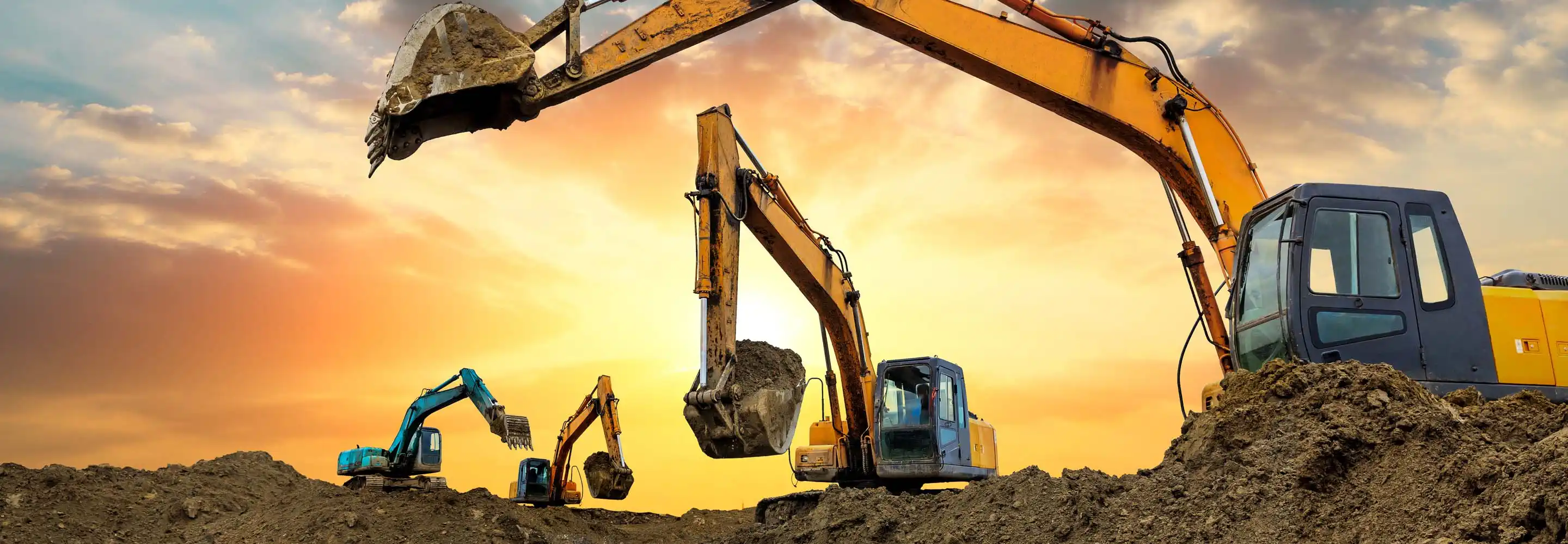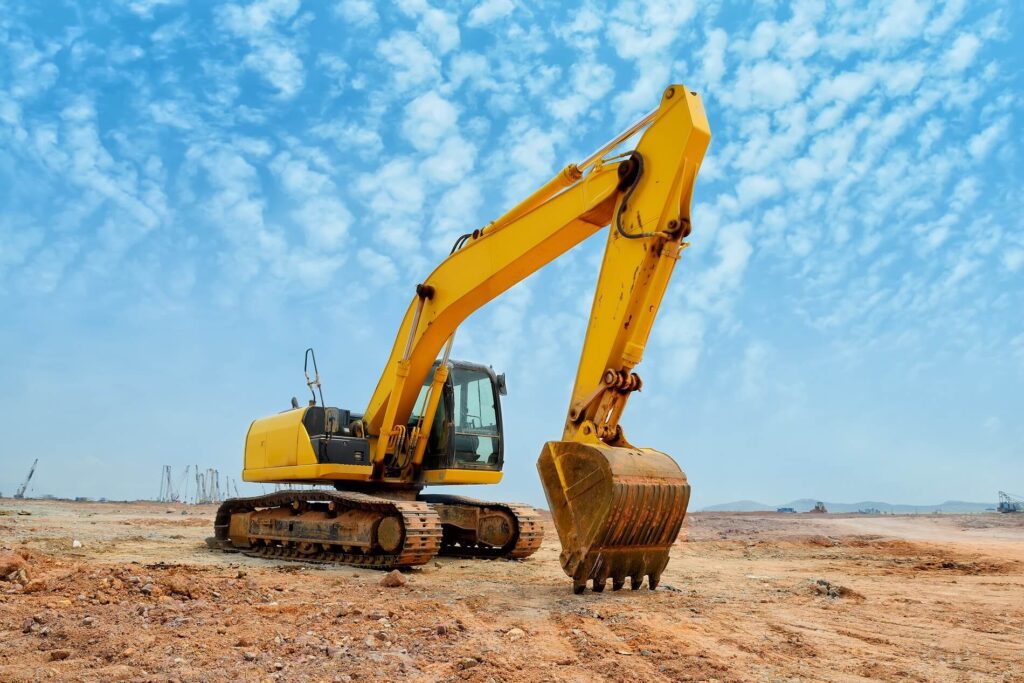Mini Excavator Rental in Tuscaloosa AL: Compact and Powerful Equipment for Small Jobs
Mini Excavator Rental in Tuscaloosa AL: Compact and Powerful Equipment for Small Jobs
Blog Article
Discovering the Financial Benefits of Leasing Building And Construction Devices Contrasted to Owning It Long-Term
The decision in between leasing and possessing construction tools is pivotal for monetary monitoring in the sector. Renting out deals immediate price financial savings and operational adaptability, allowing companies to allocate resources more effectively. On the other hand, possession comes with significant lasting economic dedications, including upkeep and depreciation. As specialists evaluate these options, the influence on cash money flow, job timelines, and technology accessibility becomes progressively substantial. Understanding these nuances is essential, especially when thinking about just how they line up with certain project demands and monetary strategies. What variables should be focused on to make sure optimum decision-making in this complex landscape?

Price Contrast: Renting Vs. Possessing
When assessing the economic effects of having versus leasing building and construction tools, a thorough price contrast is necessary for making notified decisions. The selection in between leasing and having can substantially impact a firm's bottom line, and understanding the linked prices is crucial.
Leasing building equipment typically includes reduced ahead of time expenses, permitting services to allot capital to various other functional requirements. Rental agreements usually consist of adaptable terms, enabling companies to access advanced machinery without long-term commitments. This versatility can be particularly helpful for temporary jobs or fluctuating workloads. Nonetheless, rental expenses can gather with time, potentially surpassing the expenditure of possession if devices is needed for a prolonged duration.
Alternatively, possessing construction tools requires a significant preliminary financial investment, along with continuous costs such as financing, devaluation, and insurance policy. While possession can cause lasting cost savings, it additionally locks up resources and may not offer the exact same degree of flexibility as leasing. Furthermore, possessing equipment necessitates a dedication to its usage, which might not constantly align with task demands.
Ultimately, the decision to possess or rent needs to be based upon a comprehensive evaluation of certain job needs, monetary capability, and lasting calculated goals.

Maintenance Obligations and expenditures
The option between having and renting out building and construction equipment not just entails economic considerations yet also includes recurring upkeep expenditures and obligations. Having tools needs a substantial dedication to its upkeep, that includes regular examinations, fixings, and prospective upgrades. These responsibilities can rapidly build up, leading to unforeseen costs that can stress a budget plan.
On the other hand, when renting out devices, maintenance is commonly the obligation of the rental business. This arrangement enables specialists to avoid the monetary worry related to damage, along with the logistical difficulties of organizing fixings. Rental contracts frequently consist of arrangements for maintenance, meaning that specialists can concentrate on completing jobs instead of fretting about equipment condition.
In addition, the varied variety of devices available for rental fee enables firms to select the most recent models with sophisticated technology, which can boost performance and performance - scissor lift rental in Tuscaloosa Al. By choosing leasings, businesses can prevent the long-lasting obligation of equipment depreciation and portable concrete mixer machine the associated upkeep additional hints frustrations. Eventually, evaluating upkeep costs and duties is crucial for making a notified decision regarding whether to rent or have building equipment, substantially affecting general task costs and operational effectiveness

Devaluation Effect on Possession

A significant aspect to consider in the decision to own building devices is the impact of depreciation on total ownership expenses. Devaluation represents the decline in worth of the equipment in time, affected by factors such as usage, deterioration, and advancements in innovation. As equipment ages, its market value reduces, which can significantly impact the owner's monetary setting when it comes time to trade the tools or market.
For construction firms, this devaluation can equate to significant losses if the tools is not made use of to its fullest capacity or if it lapses. Proprietors have to account for devaluation in their financial estimates, which can result in greater overall costs contrasted to renting out. In addition, the tax obligation effects of depreciation can be complicated; while it might provide some tax obligation benefits, these are often balanced out by the reality of lowered resale value.
Inevitably, the worry of devaluation stresses the importance of recognizing the long-lasting economic dedication associated with having building and construction tools. Companies need to carefully assess how typically they will make use of the devices and the potential monetary impact of depreciation to make an educated choice regarding possession versus renting out.
Monetary Adaptability of Leasing
Leasing construction equipment provides significant economic versatility, enabling firms to allot sources extra successfully. This flexibility is particularly important in an industry identified by fluctuating job needs and varying workloads. By try this web-site choosing to rent out, services can avoid the significant resources outlay required for buying equipment, preserving cash circulation for various other operational needs.
Additionally, renting tools enables firms to customize their devices choices to details task needs without the lasting commitment associated with ownership. This implies that services can quickly scale their devices inventory up or down based upon anticipated and current task requirements. Subsequently, this adaptability lowers the danger of over-investment in machinery that might end up being underutilized or obsolete with time.
One more economic advantage of renting is the potential for tax benefits. Rental payments are commonly considered business expenses, permitting prompt tax obligation reductions, unlike devaluation on owned devices, which is topped numerous years. scissor lift rental in Tuscaloosa Al. This instant expense recognition can better enhance a business's cash money position
Long-Term Task Factors To Consider
When assessing the lasting needs of a building business, the choice between possessing and renting out equipment becomes more intricate. For jobs with prolonged timelines, buying devices may appear useful due to the possibility for lower overall prices.
The construction sector is progressing rapidly, with new tools offering enhanced effectiveness and security attributes. This flexibility is particularly advantageous for businesses that take care of diverse projects needing different kinds of tools.
In addition, financial stability plays a critical role. Possessing tools usually involves substantial capital expense and depreciation issues, while leasing permits more foreseeable budgeting and money circulation. Ultimately, the selection between possessing and renting out needs to be aligned with the calculated goals of the building and construction organization, considering both expected and existing project demands.
Final Thought
In conclusion, renting out construction tools supplies considerable financial benefits over long-term possession. Inevitably, the decision to rent out rather than own aligns with the vibrant nature of construction jobs, permitting for adaptability and access to the most current tools without the financial concerns associated with ownership.
As equipment ages, its market value decreases, which can significantly affect the owner's monetary placement when it comes time to trade the tools or market.
Renting out building and construction tools offers considerable financial flexibility, allowing companies to assign resources much more efficiently.Additionally, renting devices allows business to customize their devices selections to details task needs without the lasting dedication connected with ownership.In conclusion, renting building and construction tools uses significant monetary advantages over long-lasting ownership. Ultimately, the choice to rent out rather than own aligns with the dynamic nature of building tasks, enabling for versatility and access to the latest tools without the economic problems connected with ownership.
Report this page